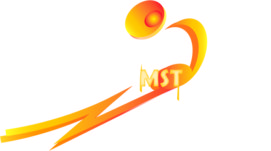The conscious brain functions, characterized by that little voice in your head that incessantly chatters, is great for planning shots, but the execution of the shot is best left to sub-conscious control. Unfortunately, the conscious self tends to have an ego and will interrupt whenever it can! On the other hand, the sub-conscious brain just goes with the flow – it does not make judgements about good or bad, right or wrong, it just tries to execute whatever the conscious brain tells it to do without any consideration. Therefore, it is in the athlete’s best interest to “teach” the conscious self how to behave and work for the best interest of the athlete, not against it!
Remember, the sub-conscious is highly impressionable, and will act on whatever instructions it is given. So, allowing the conscious self to say something like “oh-no, another long left to right crosser… Last time I missed 4/4 of these – I just don’t know how to hit them”, will almost certainly result in a miss as the sub-conscious will believe it does not have the capability. Some athletes will not only say these types of things in their head – but will actually even blurt them out loud! This reinforces the idea in the self-conscious even more!
So, what can the shooter do? First, when you catch that little voice saying negative things, try to immediately redirect the comment. Instead of the statement above, a more realistic comment would be – “oh boy, a long crosser! I have been working on these and know how to shoot them. With practice, I am getting more consistent – lets focus on proper set-up for this shot first. It is like me know to be able to hit these!”.
The second thing the shooter can do it to control reaction to a miss. Instead of focusing on the miss – focus on what went well on the pair (maybe the shooter crushed the other target of the pair). Then let the conscious brain do its thing to make whatever adjustment is required for the next pair. Do not allow negative comments like “I stink!” to get uttered.
There are a few general rules that can help:
- Try to redirect the conscious voice when it starts down a negative path. Specifically, try to never allow that inner voice to use language you would not use with your best friend when trying to help them.
- Do not say out-loud any negative comments. If someone asks you how your round was, don’t say “I shot like a dog!”. Instead, say something like “I learned a few things about hitting long crossers today! It’s going to show up in my scores next time.”.
- Focus on giving the conscious brain “something to do” during execution of the shot so it stays locked up. The conscious brain is relatively slow at processing information and can really only handle one task at a time while the sub-conscious has much wider bandwidth and can execute tasks much more quickly. Use the conscious brain to do the shot planning – then give it one task to do – for example to direct the eyes to a proper eye hold point during the shot – then call pull keeping that inner voice from interrupting the flow of the shot.
- Between stations, don’t allow the inner voice to go to the dark side! Think about something other than shooting to give the brain a break. Keep positive. Don’t worry about the score, what other competitors are doing, or anything else! Keep reminding yourself that it is like you to do the best you can on every presentation, and with experience and practice, consistency is coming!
- Visualize successful outcomes always both on and off the course. On the course, use positive visualization as part of the pre-shot routine. Off the course, visualize hitting every target reminding yourself it is like you to do that! Visualize the comments you will get from others when you are successful. In this way, you are priming the sub-conscious for the results you expect it to produce and preventing negative thoughts from creeping in.
In summary, it is nearly impossible to quiet that little voice in your head, but you can train it to do what you want it to do – and that is to teach the sub-conscious brain what you want it to execute! This process doesn’t occur over night. Like anything else it takes practice. One way to make improvements in this area is to enlist friends to help you realize when you outwardly make negative comments. With some practice, it is possible to drive higher confidence by getting control of that inner voice!
